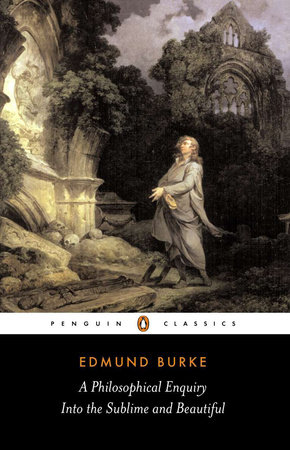
A Philosophical Enquiry into the Sublime and Beautiful
And Other Pre-Revolutionary Writings
Edmund Burke; Edited with an Introduction and Notes by David Womersley
Paperback
July 1, 1999 | ISBN 9780140436259
AmazonBarnes & NobleBooks A MillionBookshop.orgHudson BooksellersPowell'sTargetWalmart
About the Book
For more than seventy years, Penguin has been the leading publisher of classic literature in the English-speaking world. With more than 1,700 titles, Penguin Classics represents a global bookshelf of the best works throughout history and across genres and disciplines. Readers trust the series to provide authoritative texts enhanced by introductions and notes by distinguished scholars and contemporary authors, as well as up-to-date translations by award-winning translators.


